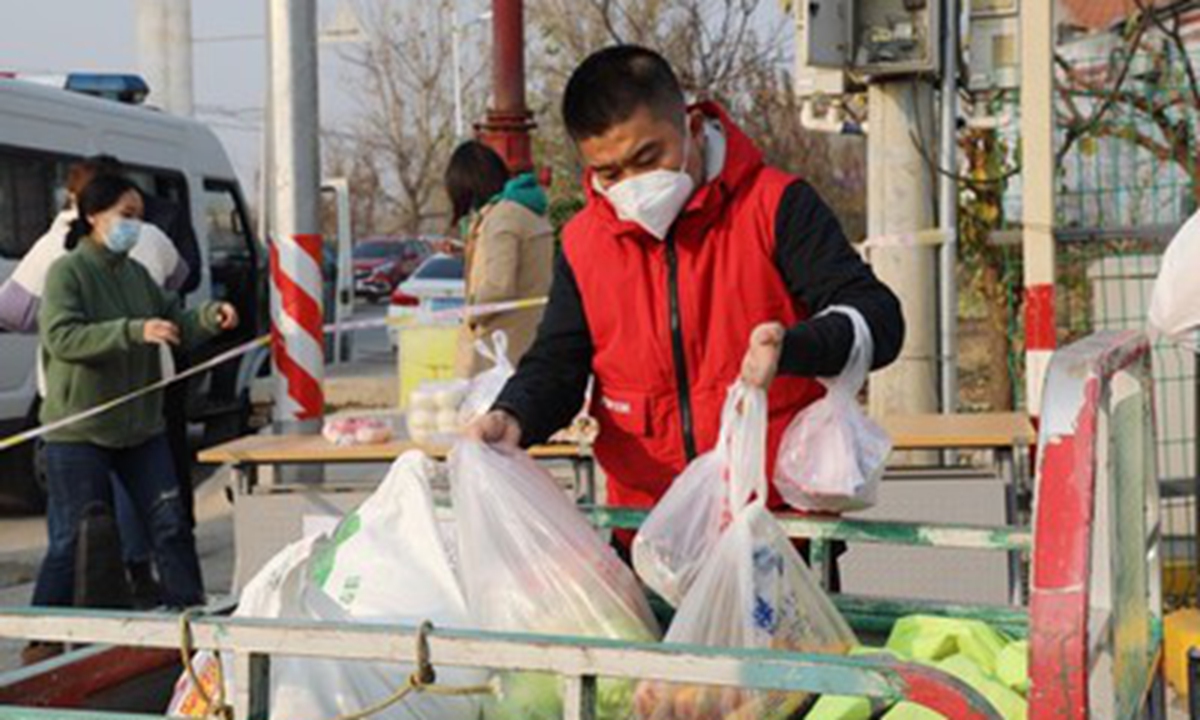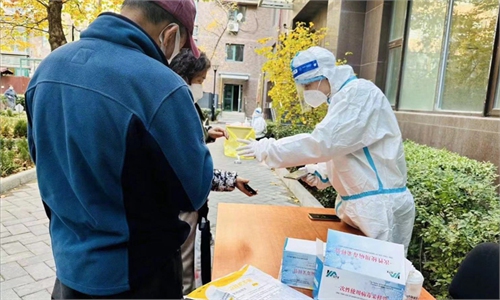China rolls out rules on mental health support for people in home quarantine, vulnerable groups

A volunteer delivers living supplies to residents in Beijing's Daxing district on November 20, 2022. Photo: from IC.
Chinese officials have underscored mental health support for those subject to COVID-19 quarantine or health monitoring to avoid stress-triggered extreme events in its newly released anti-COVID guidelines, requiring special attention to vulnerable groups such as pregnant women, the elderly and those with underlying diseases.
In detailing the 20 optimized measures which are aimed at scientifically and precisely controlling the epidemic across the country, China on Monday released four documents which address COVID-19 testing, classification of risk regions, as well as home quarantine and home health monitoring.
According to guidelines for home quarantine and home health monitoring, the community officials must inform residents subject to quarantine or monitoring about the dedicated psychological assistance hotline.
"Psychological counseling and support should be provided to relieve negative emotions, to alleviate their distress caused by the epidemic and to prevent extreme events triggered by psychological stress by those subject to quarantine or health monitoring," the guidelines read, requiring prompt and timely intervention by corresponding mental health medical institutions after identifying potential mental health issues.
The guidelines also require community officials to register information regarding vulnerable people in each household, including elderly people living alone, pregnant women, patients with underlying diseases or in need of hemodialysis, to guarantee them with necessary support.
For those who have recently returned from centralized quarantine facilities, officials to record their health condition in detail, such as if they have underlying or mental disease any prescription medication, if they have children, or are elderly people or patients incapable of self-care.
The guidelines highlight a guarantee for essential supplies and medical services, requiring officials to organize delivery of necessity and the setting up hotlines among community, drug stores and hospitals. "The residents' need of medicine and medical treatment must be met and no reason will be allowed to refuse resident's medical treatment."

